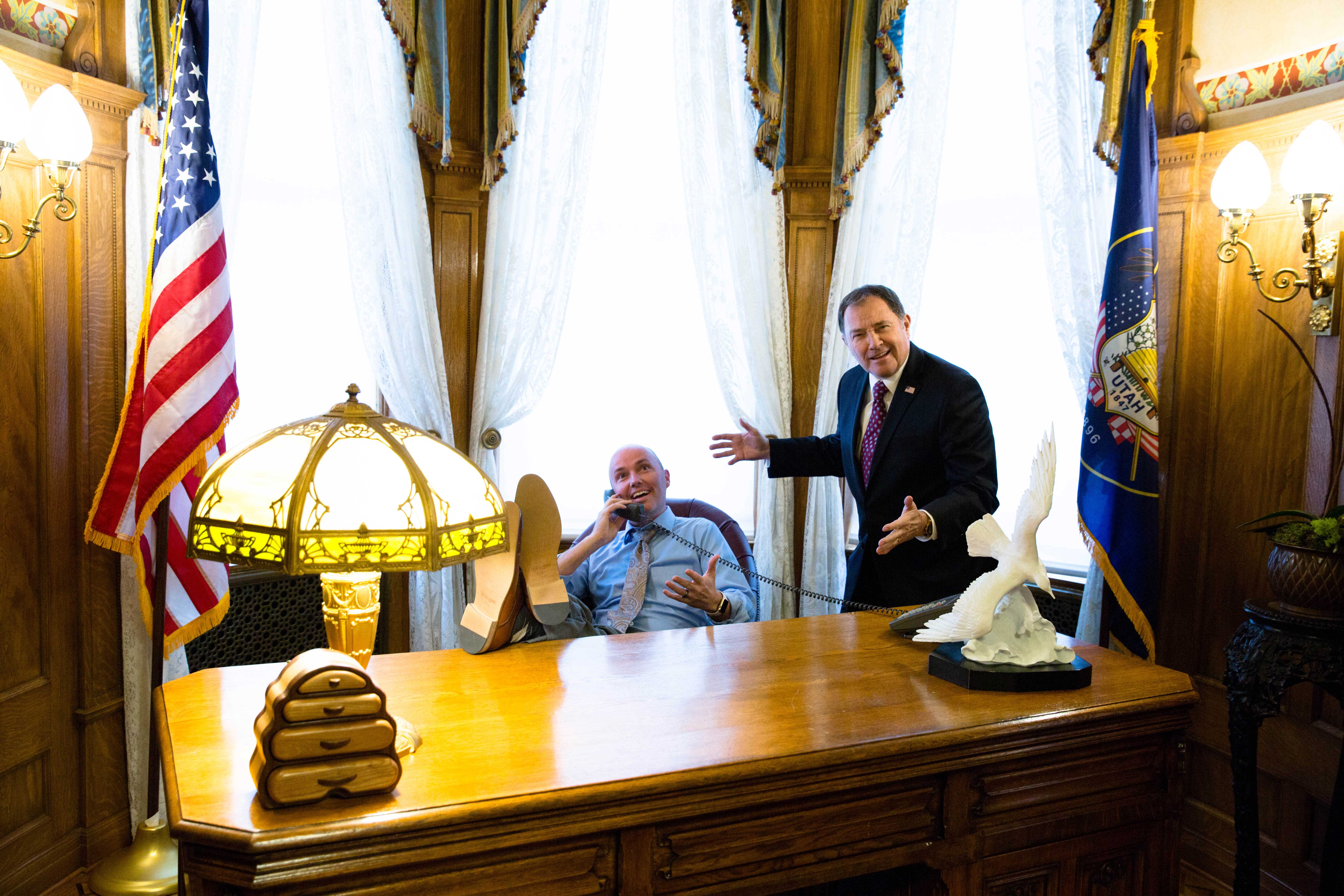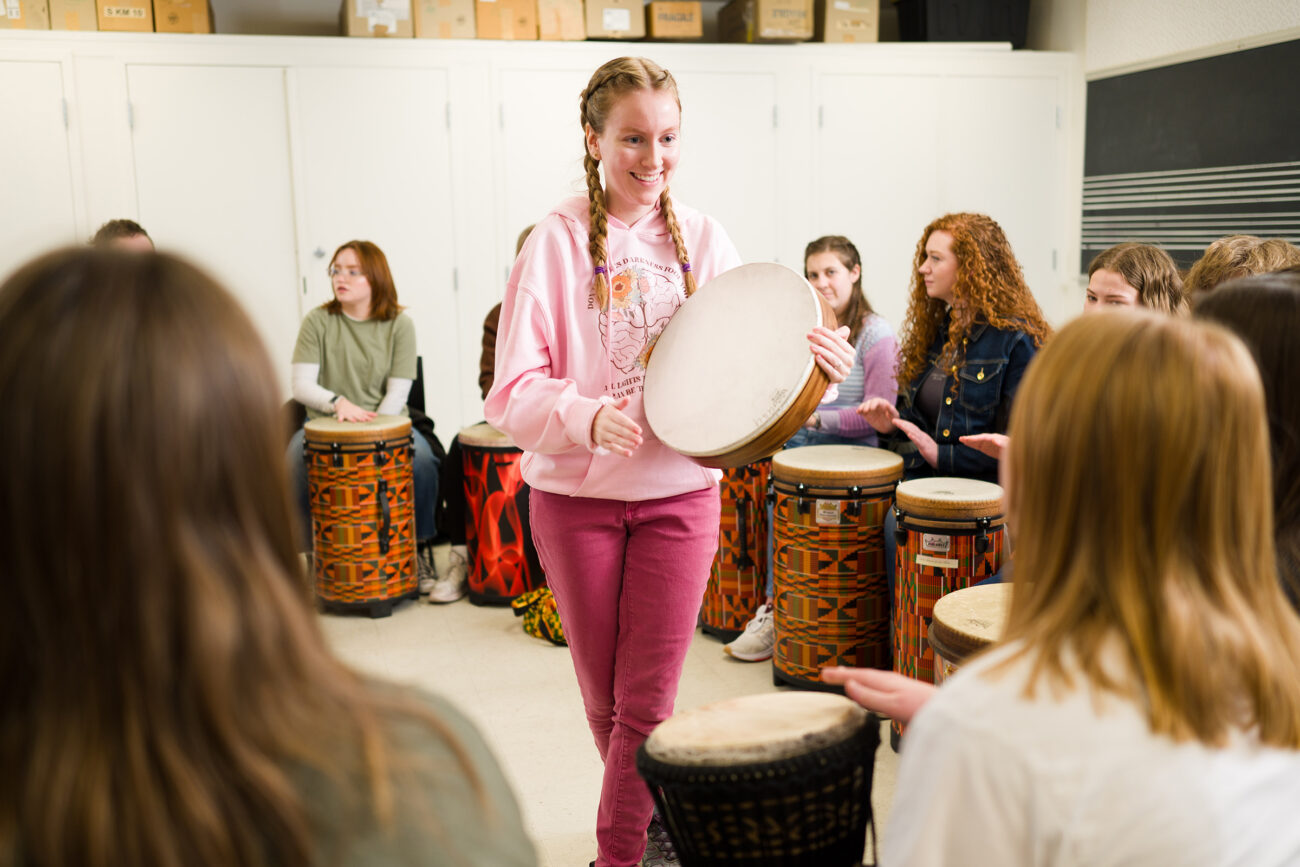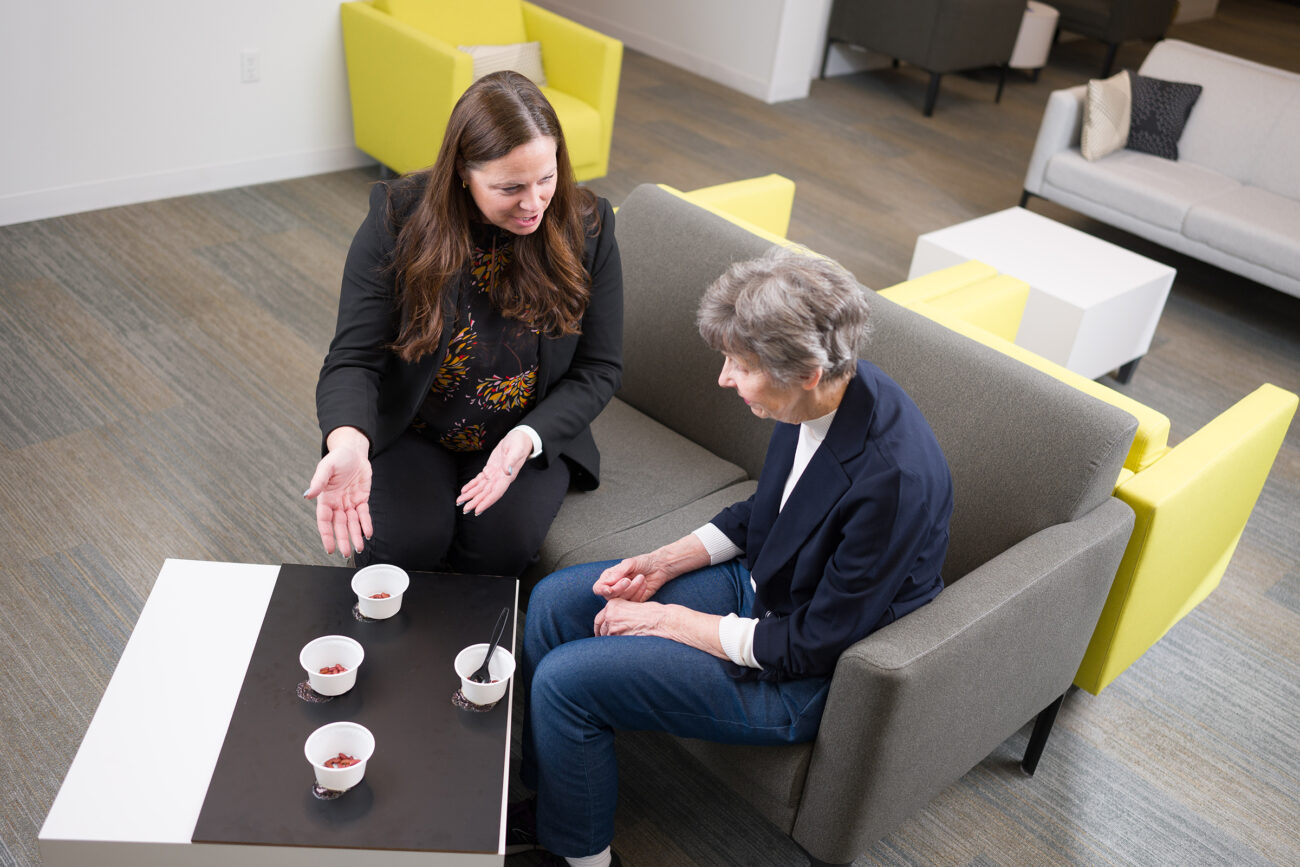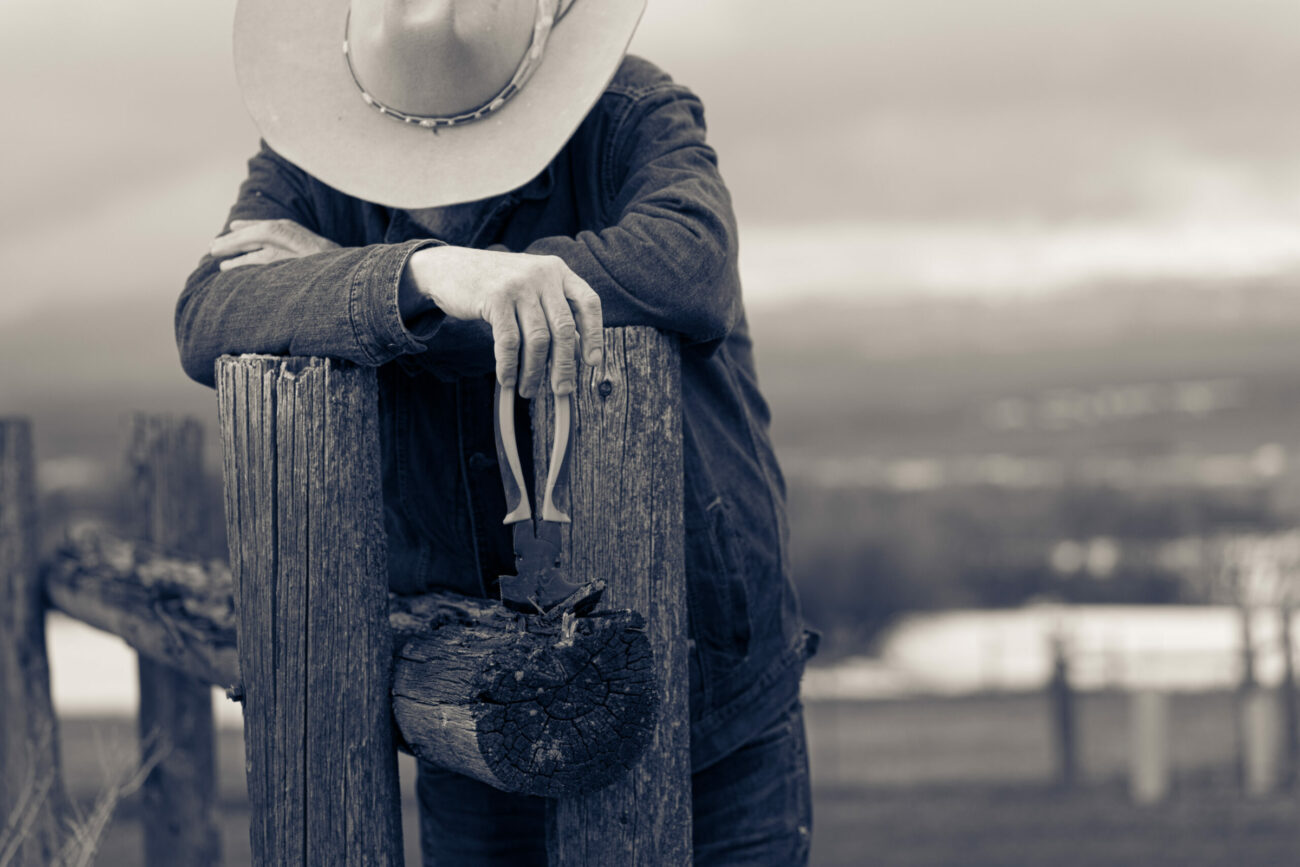Going With Good

Lt. Gov. Spencer Cox, seated, with Gov. Gary Herbert, loves to show his lighter side, the one who gets to drive around the state and see people on their best days. It’s the times when he is with people on their worst days, however, that has come to best define him.
In the five years since Spencer J. Cox, ’98 took the oath of office to become the state’s second in command, he has proven to be more than a ribbon-cutting stand-in for the governor. He has already made international headlines simply for showing empathy.
A rural kid from Fairview, Utah, Cox spent his summers getting up at 5 a.m. to change the sprinklers for 10 cents per pipe―30 pipes in the morning and another 30 at night. He looks you straight in the eye when he speaks. A person who understands that when you plant a field, you are in it for the long haul.
When Governor Gary Herbert plucked him from his John Deere tractor in 2013 to become the state’s 8th lieutenant governor, Cox had barely been elected to the Utah House, a part-time job that he considered more a hobby than anything else. The call from the governor shocked him, his family, and the state, he says. “No one knew who I was or had heard of me in any way.”
With that one notable exception. Herbert appreciated the similarities to his previous lieutenant governor Greg Bell. Both served as co-chairs on the governor’s Rural Partnership Board, and before that, on their own city councils. Both were mayors of their communities and members of the state legislature. They even worked at the same Salt Lake City law firm. The only main difference, the governor joked, is that Cox is shorter.
Cox did not want to turn the governor down, but he hated the thought of uprooting his family from Sanpete County. He liked being in the community where he and his wife, Abby, ’98 were born and raised and where their four children now call home. But if the former USU political science graduate learned anything from Bill Furlong, now emeritus professor, it was that most tough decisions in politics require some give-and-take. If Cox could stay in Fairfield, he would take the job, even if it meant commuting 200 miles round-trip to do it.
Ultimately, it was Abby who helped sway him by appealing to his independent nature. “We have too many people in these jobs who really, really want them,” she reasoned. “What we need more are people who don’t.” This realization has helped him to be comfortable in his own skin and go deep when he needs to, and often he has.
In 2016, he spoke at a candle light vigil at the Salt Lake County building in memory of the 49 people killed during a shooting rampage at a gay bar in Orlando, Florida. He spoke with comforting frankness. “I am speaking now to the straight community,” Cox said. “How did you feel when you heard that 49 people and been gunned down by a self-proclaimed terrorist? That’s the easy question. Here is the hard one: Did that feeling change when you found out the shooting was at a gay bar at 2 a.m. in the morning? If that feeling changed, then we are doing something wrong.”
Those were some of the words picked up by the media from around the globe for their compassionate delivery. The ability to love people for who they are is a theme that crops up in most of his talks. It motivates him in his work, including a task force he led addressing Utah’s high youth suicide rate.
The importance of showing kindness in everything one does is a lesson he shared with the 2017 graduates at Snow College. “The world is constantly trying to convince us that almost everything is a binary choice,” he told students. “Either you love minorities and hate cops or you are a racist and love cops. Either you are religious or you support the LBTGQ community, but never both. PLEASE DON’T listen to this logic … ‘It’s a trap!’”
And so it was no surprise that Cox spoke at a LoveLoud festival in July talking about his own bouts with depression and thoughts of suicide as a young man. “I know what I’ve gone through is nothing compared to what so many of our LGBTQ friends have gone through, but I’m here to tell you we need you to stay,” he told the crowd. “Tonight we say no to bullying and suicide.”
And no to political potshots, he says in his office at the capitol. “It disturbs me when people vilify others to build themselves up. I think we should be able to stand on our own record and on our own ideas. And if I have to tear someone else down to convince you to vote for me, then you shouldn’t vote for me.”
In June when reports were at fever pitch regarding the U.S. Government separating children from immigrants seeking asylum, the desperate looks on the faces of children and parents left Cox fuming. On June 20 at 1:24 a.m., he could no longer hold back his feelings for people he had come to know while serving his church on a two-year mission in Mexico. “I know I shouldn’t tweet. But I’m angry. And sad. I hate what we’ve become. My wife wants to go & hold babies & read to lonely/scared/sad kids. I want to punch someone. Political tribalism is stupid. It sucks & it’s dangerous. We are all part of the problem.”
Once again, his sentiments appeared in media reports around the world. So yes, if you want to rankle, go tribal on him. He’ll show his serious side. But give him the choice, and you are more likely to see the lighter “let’s all be nice and work together” version. Credit his sense of humor, optimistic demeanor, and ability to take on serious issues without taking himself too seriously. It’s that sense of playfulness that listeners are treated to in his weekly podcast Cox & Friends.
“It’s the podcast you didn’t know you needed, and probably don’t,” he says at the top of each show. He’ll talk politics alright, but would rather talk about how the Aggies played over the weekend or what we can expect from the Utah Jazz against the Warriors. Since the podcast launched in April, guests ranging from former Democratic state senator Pat Jones to the governor have appeared.
It’s a unique inside-view Cox shares with his listeners that is refreshing as it is illuminating. He loves to make you feel like you are listening to a friend, not a politician. He will joke about his polygamous ancestry in one segment, and later rejoice in the extra hour his church now gives him on Sundays. It’s all good and it’s all him.
Try to joke with this Republican about what he would do if he came across a Democrat alone on a dark street, he gives it to you straight: “I would ask questions and I would listen. I just don’t think we do enough listening.”
Has he considered running for higher office? Perhaps. Herbert has let him measure the drapes at the Governor’s Mansion and put his feet up on his desk. It felt pretty good, but Cox hasn’t divulged any plans for 2020. However, in his Oct. 23 podcast, his chat mate, Owen Fuller, encouraged him to go for it—just keep being himself. Just as he did that spring night in Salt Lake City when he and others grieved for those in Orlando.
“Now you know a little something about hate,” Cox told the mourners. “And you know a little something about persecution. But you also know something about loving, blessing, and doing good. What our country needs more than ever is less politics and more kindness.”
Yup, he’s going with good.
By John DeVilbiss
To listen to the Cox & Friends podcast, go to facebook.com/CoxFriendsPod.






Rose February 3, 2019
I’m conflicted because I really like him. I am afraid if he ran, I’d be let down by someone I previously really liked!
Jackson Murphy January 17, 2019
Great write-up, John.